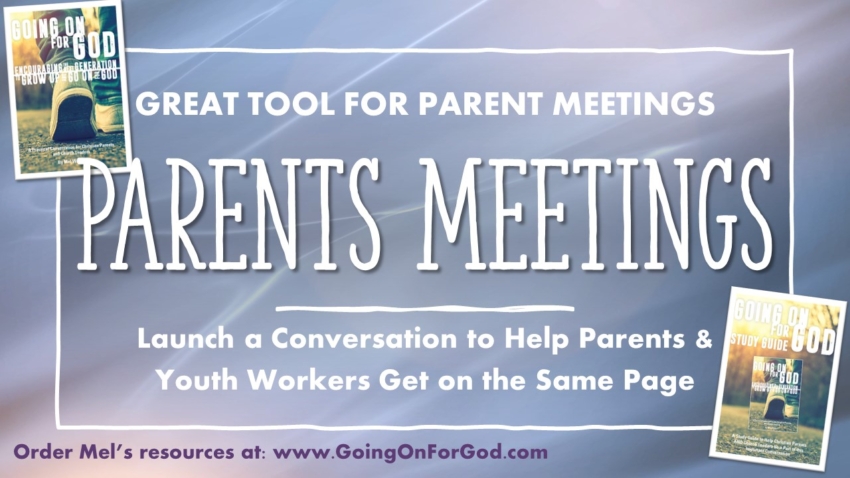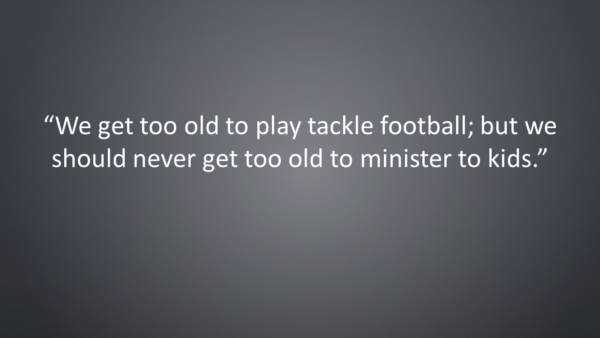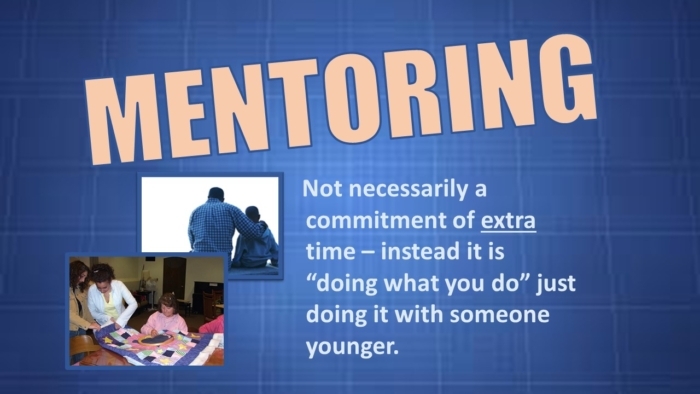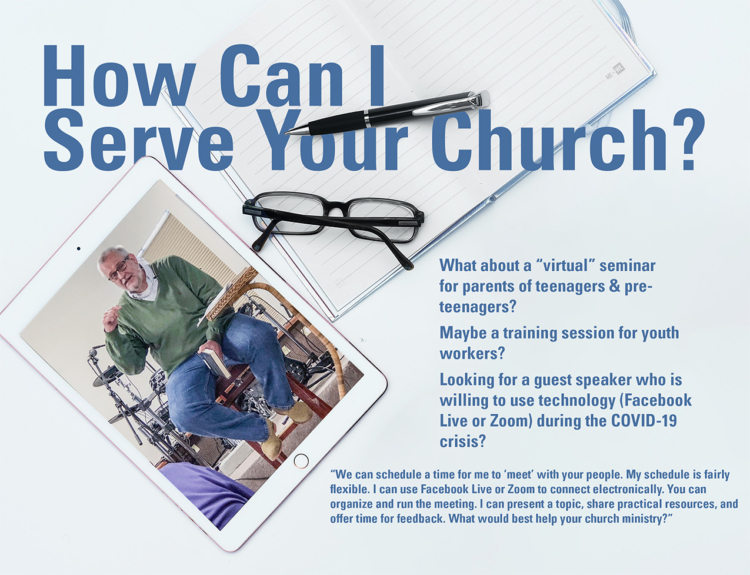HOW SMALL CAN BE HUGE: The Great Potential of Small Youth Groups

A recent report stated that the average church in America has about 80 people, 4 of whom are teenagers. I don’t know if that description fits your church, but the report shows that the typical church is nowhere near the size of a megachurch. Sure, mega churches get all the attention, but let’s face it; most churches do not have the facilities, budget, or number of people to garner a great deal of interest from anyone other than the regular members or attendees. Therefore, it’s quite easy for pastors and other leaders in smaller churches to get discouraged when some of their people seem to be attracted to the larger megachurches in their communities.
In my opinion, there seems to be a growing church insecurity about having a small congregation. A friend of mine has repeatedly stated, “Every small church is trying to get bigger, and every large church is trying to get smaller.” He is obviously talking about the trend today toward small-group ministries. I admit that I have some cautions about small groups, and I advise churches to implement some guidelines into the organization of their small groups; but for the most part, I am a fan of small groups in the local church. There’s a great deal of good that can come from a small-group ministry.
I grew up in a small town. My family attended a small church, and I was active in a small youth group. Over the years of my ministry, I have visited or preached in a variety of churches of all sizes. I have also talked to several volunteer youth workers in churches with very small youth groups or youth Sunday School classes. Those experiences have given me the following perspective of the advantages of small church youth ministry.
Make much of people, not programs.
The biggest advantage of being in a small church is that we can emphasize people over programs. Somehow, we must learn that it doesn’t take an organized structure to do real ministry. Effective ministry can happen in our kitchens around a cup of coffee or in our living rooms with our feet propped up on the coffee table. I am becoming increasingly convinced that today’s students are much more impressed by adults who genuinely care about them than they are with overly organized and structured programs. Don’t get me wrong; I see value in organization and structure. However, smaller churches have a real advantage over bigger churches in the development of close relationships.
If you are a youth worker in a small church, you can have everyone over to your house for dinner or take the whole class out for McDonald’s milkshakes without taking out a second mortgage or robbing a bank. If you only have a handful of students in your group, you can probably get out to their high school football games or concerts. You can remember everybody’s birthdays, and you can pray for each one specifically each day. You can show them how to do their own personal devotions and you can answer specific life-related questions. You can become their friend and not just another acquaintance from church. See, there are huge advantages to being in a small church where you can make much of people instead of programs.
Stress relationships, not rooms.
It seems that the modern church is more interested in building buildings than building lives. That statement may be a bit sarcastic, but this view of most churches is wrong. A pastor friend of mine recently experienced a fire in his church building that practically destroyed the facility. Even though insurance paid for the reconstruction of their building, he said this to me during the process: “I’d almost like to do without our building permanently. [Without the building] our people were closer, the fellowship seemed to be more genuine, and church seemed to be real.” Perhaps he was right. Perhaps our fancy buildings and facilities sometimes get in the way of real ministry.
I’ve had many youth workers over the years ask me about their youth rooms or Sunday School classrooms. Ideal facilities would be nice, but most churches I know of do not have the money or budget to build “perfect” youth meeting rooms. In fact, I have had occasions where I taught teenagers in church busses, in gymnasiums, in basements where I couldn’t even stand up straight, and in broom closets under the stairs. I really don’t think that Christ would have been overly concerned with PowerPoint, smart boards, or sound systems. He may have utilized those things, but I’m sure that His focus would have been to develop strong interpersonal relationships with His students. Sure, He made use of visual aids. He wrote in the dirt on the ground and referenced objects in nature to visualize the truth He was teaching. But mostly He concentrated on people. That seems like a good idea for ministry with teenagers today.
Build trust instead of technology.
I certainly enjoy modern technology. I love my laptop and carry my iPhone and iPad religiously. My son wrote me a note recently that stated, “You are the only Dad who has cooler toys than his kids.” Yep, I admit that I am a collector of technological toys. But let’s all be careful not to let our electronic gadgets isolate us from people.
I am old enough remember the days when “Walkmans” were the great evil in youth ministry. Youth workers feared that kids on the bus who listened to walkmans would drown out conversations with other people. These workers made rules that wouldn’t let kids bring those old cassette tape players on youth trips. Remember those days? Now we are all hearing that modern technology actually helps kids connect with each other. One recent research organization reported that today’s teenagers would be willing to do without almost anything they owned – except for their cell phones. I’m sure that technology can help us stay connected to our students, but let’s be careful not to send text messages, e-mails, to kids when we should be spending time with them in person. I think we should utilize every means possible to stay in touch with teenagers, but let’s be sure to include spending time with them individually in person as well. You can do that very well in a smaller church.
Emphasize mentoring over methods.
Somehow it seems that contemporary youth ministry has become “method” crazy. “How to” has become the latest and greatest craze. It is imperative for all of us to work on our creativity and imagination. All of us should get better at implementing creative Bible learning and imaginative methods in our teaching. But we should never sacrifice Biblical truth at the altar of student involvement or interaction. It also seems like today’s youth workers are constantly looking for the next “what works” method for ministry. Countless conferences and seminars tout the latest and greatest technique for youth ministry. These methods are fine, but we must never forget that real, Biblical ministry should focus on the spiritual practices of basic discipleship and mentoring.
Mentoring is a concept that must be intentionally implemented into the fabric of our ministries. It can be an effective way to connect the various generations with each other in our churches. The fundamental idea of mentoring is that caring, godly adults should take the initiative to develop intentional growing relationships with young people. In other words, we must teach adults to do what they normally do, just to do it with students. For instance, my mom is a very talented quilt maker. She has had a very effective ministry showing young ladies in her church how to quilt. My mother-in-law loves music. She has taken some of the young girls in her church to piano recitals and concerts. One national youth ministry organization recently reported that 90 percent of today’s teenagers stated that they would love to have an adult mentor. That’s the concept so aptly described in Titus 2. Older men and older women can have an incredible mentoring ministry by spending time with teenagers.
Train, don’t just “teach.”
My last suggestion may seem strange, but I believe in teaching and have spent the majority of life involved in various teaching endeavors. We must emphasize training or equipping, not just the verbal presentation of fact. Our ministries must feature training , not just lectures. I also believe in the importance of preaching. However, my focus is on the significance of true education: making sure that our students learn. Christianity must impact the lifestyles of our students. That’s why the truth of James 1:22 is so critical for today’s culture. Our students need to see how Biblical principles relate to life today. I love the account in Luke 24 of Christ’s post-resurrection appearance to some of His disciples. Verse 32 presents this interesting question, “Did not our heart burn within us, while He talked with us by the way, and while He opened to us the Scriptures?” Christ taught them the Bible while He walked with them through their journey. Perhaps that is an apt description of what real ministry is all about: showing students that God’s Word relates to life!
May God bless you as you minister to today’s students, even in small churches.









